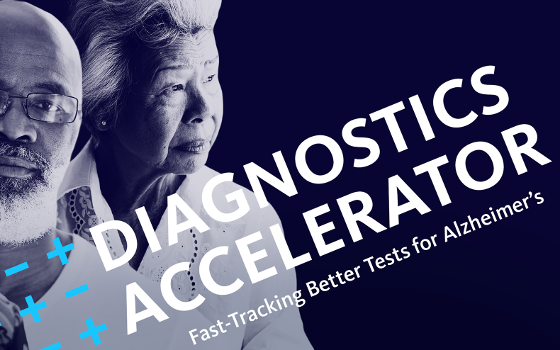Gates and Lauder provided the initial funding to collaborate with the ADDF to undertake the initiative, and they are joined by a group of other philanthropists, including the Dolby family and the Charles and Helen Schwab Foundation, who share their dedication to combating the rising burden of Alzheimer's disease. "Over the next three years, we will provide more than $30 million in grants to researchers who are working on the most promising and innovative ideas to help diagnose Alzheimer's disease early before the more devastating symptoms occur," Lauder said.
In a Gates Notes post published today, Gates explained why he is collaborating with the ADDF to create Diagnostics Accelerator. "Imagine a world where diagnosing Alzheimer's disease is as simple as getting your blood tested during your annual physical. Research suggests that future isn't that far off, and Diagnostics Accelerator moves us one step closer," Gates said. In a November 2017 Gates Notes post, Gates outlined why he was investing in the fight against Alzheimer's disease, and he identified early detection and diagnostics as one of his five focus areas.
Diagnostics Accelerator is a venture philanthropy vehicle, an innovative model that gives it the flexibility to back promising cutting-edge research that may not have a guaranteed immediate commercial return. It will strike a balance between taking more risks than traditional venture capital funds and being more focused on developing real products for the marketplace than basic research funded by governments or charitable organizations.
Dr. Howard Fillit, Founding Executive Director and Chief Science Officer of the ADDF, notes that one of the key barriers to the development of treatments for Alzheimer's disease is an insufficient toolbox of biomarkers to noninvasively and inexpensively diagnose patients in clinical practice, and to screen and identify specific patient subgroups that might benefit from specific novel therapies being tested in clinical trials. Biomarkers are also used to monitor disease progression and response to treatment, and improve the rigor and efficiency of clinical trials.
"Biomarkers can show whether someone is suffering from a disease, and also how the body responds to a treatment for that disease," Dr. Fillit said. "The significance of biomarkers in Alzheimer's disease research is underscored by recent FDA guidelines that recognize the critical role of biomarkers in drug development, and shift the research definition of the early stages of the disease to include biomarkers, even before clinical symptoms become apparent."
Fillit notes that one of the goals of Diagnostics Accelerator is to aid in the development of novel drugs for new targets, such as inflammation and epigenetics. "Like in cancer today, using the biomarker specific model of precision medicine, we will be able to predict more accurately which treatment and prevention strategies will work in different at-risk populations of people who have Alzheimer's disease or other forms of dementia," Dr. Fillit said.
Funding provided through Diagnostics Accelerator initiative is open to scientists and clinicians in the U.S. and worldwide working in:
- Academic medical centers, universities, or other nonprofits. Industry partnerships are encouraged.
- Biotechnology companies. Funding is provided through mission-related investments that require return on investment. Existing companies and new spinouts are both eligible.
Rigorous scientific due diligence will be conducted by the ADDF on each proposal to the Diagnostics Accelerator.
For further information and/or to apply for a grant, please visit:
https://www.alzdiscovery.org/research-and-grants/diagnostics-accelerator
